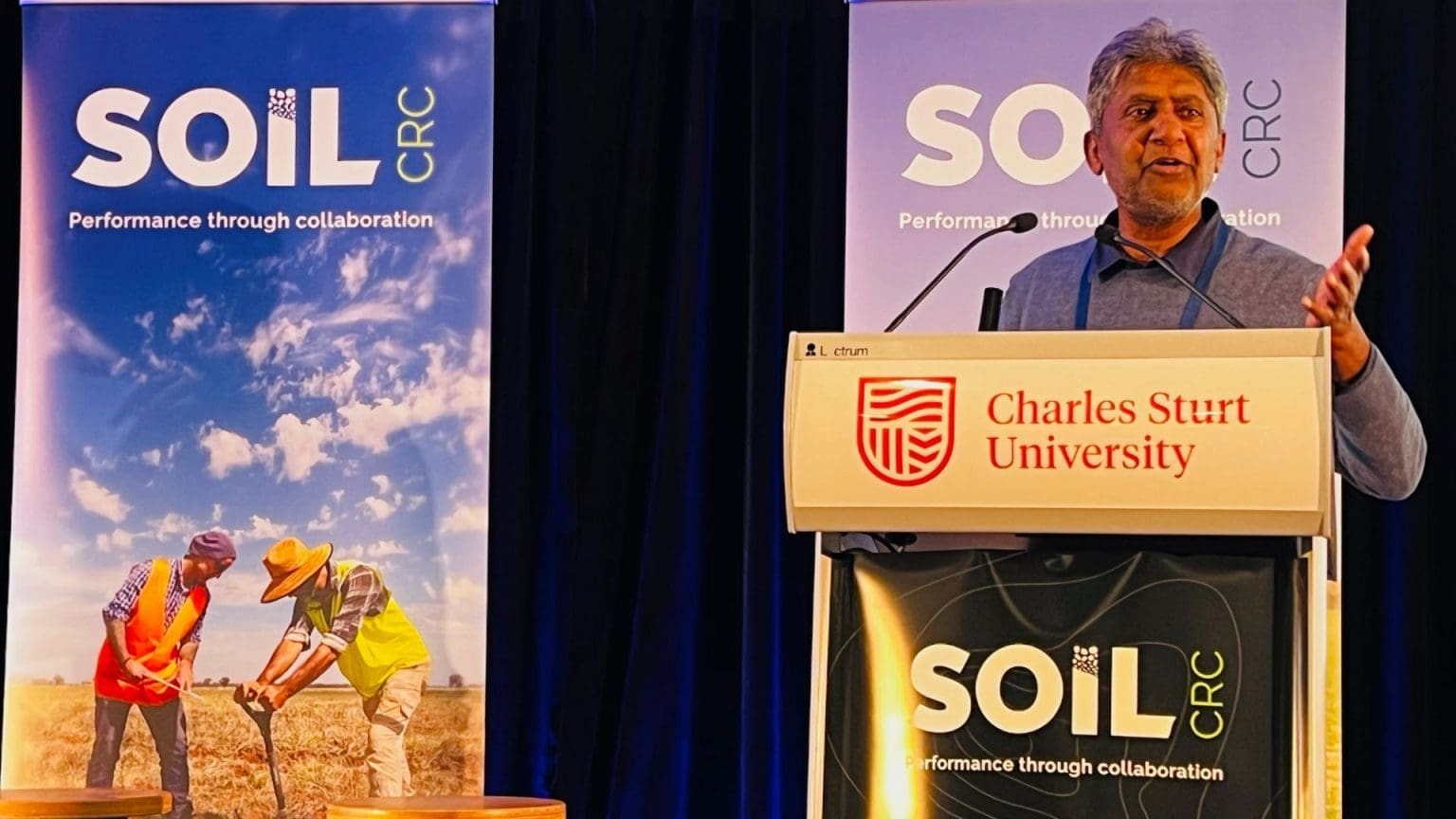
Associate Professor Richard Culas presented the research methodology and findings to-date at Soil CRC’s conference in September last year. Photo: CSU
NEW RESEARCH by Charles Sturt University agribusiness academic shows fertiliser alternatives for growers that will contribute to sustainability and profitability.
The research explored on-farm variable inputs in southern New South Wales to establish the economic benefits of the use of organic matter in agriculture.
Associate Professor in Agribusiness Richard Culas in the Charles Sturt School of Agricultural, Environmental and Veterinary Sciences in Orange conducted the study for the Soil Cooperative Research Centre (CRC).
He is also a member of the Charles Sturt Gulbali Research Institute for Agriculture, Water and Environment.
The research, titled Assessing economic feasibility and benefits of adopting high-grade organic fertilisers recovered from waste streams, identified potential organic fertilisers that farmers can use and assessed their impacts on crop yields, soil health and associated co-benefits.
Assessments were conducted on farms with three different soil types at Holbrook and Tamworth and, as a result, farmers net incomes have been estimated with and without carbon values.
“Organic fertilisers are increasingly being used in cropping systems to improve soil health and crop yields in Australia, however, their impact is complex and depends on a variety of factors, in particular their economic feasibility to use and any risk involved,” Professor Culas said.
“To estimate their impact, Agriculture Production System Simulator (APSIM) modelling was done.
“APSIM simulates crop growth, soil water movement, nutrient cycling, and soil organic carbon dynamics.”
Data was collected through crop yields and a survey of farmers in southern NSW.
The results showed that combining organic and inorganic (chemical) fertilisers could effectively replace the sole use of nitrogen-based mineral fertilisers.
These blended treatments maintained crop productivity while also improving soil health.
Professor Culas said the results of the work would provide scientific support for the use of organic fertilisers in some cases.
“The outcome of this project makes a significant contribution to the sustainability and profitability of Australian agriculture by reducing the cost of inorganic fertiliser use and to produce more food with less environmental impact.
“The framework and tools developed from this project can help farmers and industry to assess the multiple financial and environmental benefits that the use of organic fertilisers can bring.”
Source: Charles Sturt University